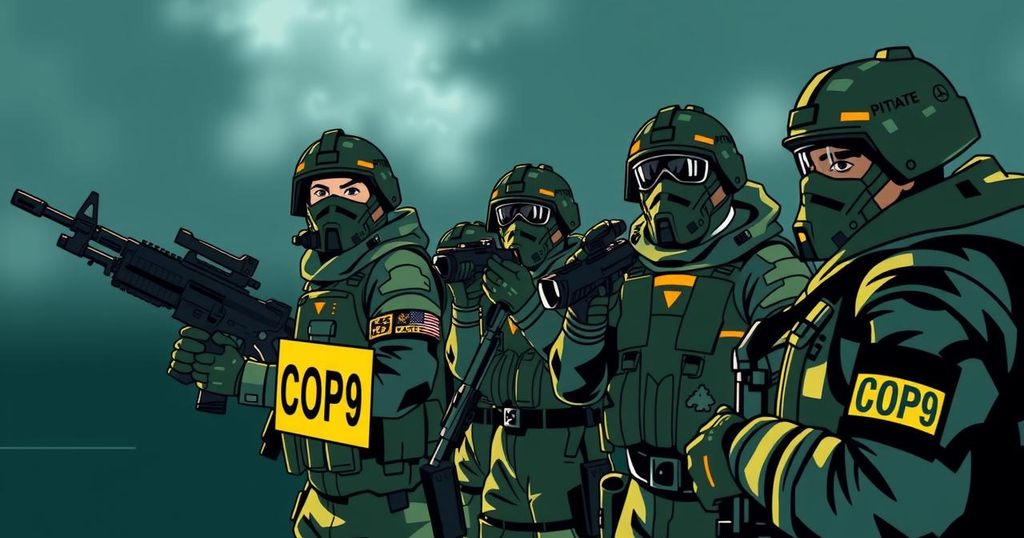At COP29 in Baku, Azerbaijan, activists conducted a People’s Plenary titled “Pay Up, Stand Up: Finance Climate Action, Not Genocide.” Key figures included Lidy Nacpil, Jana Rashed, and Leena Eisa, who spoke on linking climate action to the fight against genocides occurring in regions like Palestine, Lebanon, and Sudan. They highlighted the overlooked interconnections between environmental degradation and global violence, urging nations to halt support for oppressive regimes.
At COP29 in Baku, Azerbaijan, civil society activists hosted a People’s Plenary titled “Pay Up, Stand Up: Finance Climate Action, Not Genocide,” outside the official negotiation areas. As representatives from various nations endeavored to finalize a global climate finance agreement, participants expressed their dissent by unfurling the names of Palestinians who have lost their lives due to Israeli military operations, advocating for an end to ecological violence worldwide. Among the activists were Lidy Nacpil, a veteran Filipina climate activist; Palestinian advocate Jana Rashed; and Sudanese activist Leena Eisa, who collectively urged an immediate cessation of support for genocidal actions occurring in their home regions.
Nacpil emphasized the plenary as a critical movement for solidarity among marginalized voices facing the dual crises of climate injustice and violence. The plenary’s attendees were restricted in their expressions due to the U.N. rules preventing the mention of specific countries, necessitating a careful approach in addressing the ongoing tragedies. Nacpil highlighted the importance of addressing genocides within climate discussions, as they intersect deeply with issues of environmental degradation.
Jana Rashed, participating from Lebanon, utilized the platform to elevate awareness about the environmental destruction linked to the ongoing genocides in Palestine and Lebanon. “We can’t have this hypocrisy in the world and be here talking about just transition and climate justice without mentioning these injustices,” she asserted. Rashed called out nations that profess support for Palestinian rights, yet continue to provide resources that contribute to genocidal acts.
Leena Eisa conveyed the dire situation in Sudan, lamenting the media’s negligence regarding the genocidal violence and its impact on the society, especially on vulnerable groups such as women and children. “Black people’s lives matter,” Eisa declared, emphasizing the urgent need for global attention and action to prevent further atrocities in Sudan. Through her participation, she aimed to break the silence surrounding Sudan’s plight, urging the international community to take a stand against the systematic violence affecting her country.
The discussion at COP29 highlighted the critical intersection of climate action and global conflicts, especially as climate change exacerbates existing societal and political tensions. As climate justice movements increasingly integrate issues of militarism and genocide into their advocacy, activists seek to hold accountable both national governments and international bodies that perpetuate or ignore these injustices. The civil society actions at COP29 served as an essential reminder of the interconnectedness between fighting for climate rights and exposing the underlying structures of oppression and violence.
In conclusion, the actions at COP29 illuminated the urgent need to connect climate justice with the advocacy against global genocidal acts. Activists like Nacpil, Rashed, and Eisa underscored that addressing climate finance must involve recognizing and stopping support for military aggressions that result in catastrophic human and environmental consequences. Their collective voices reveal the critical role of unity and activism in tackling the multifaceted crises of climate change and violence on a global scale.
Original Source: www.democracynow.org






